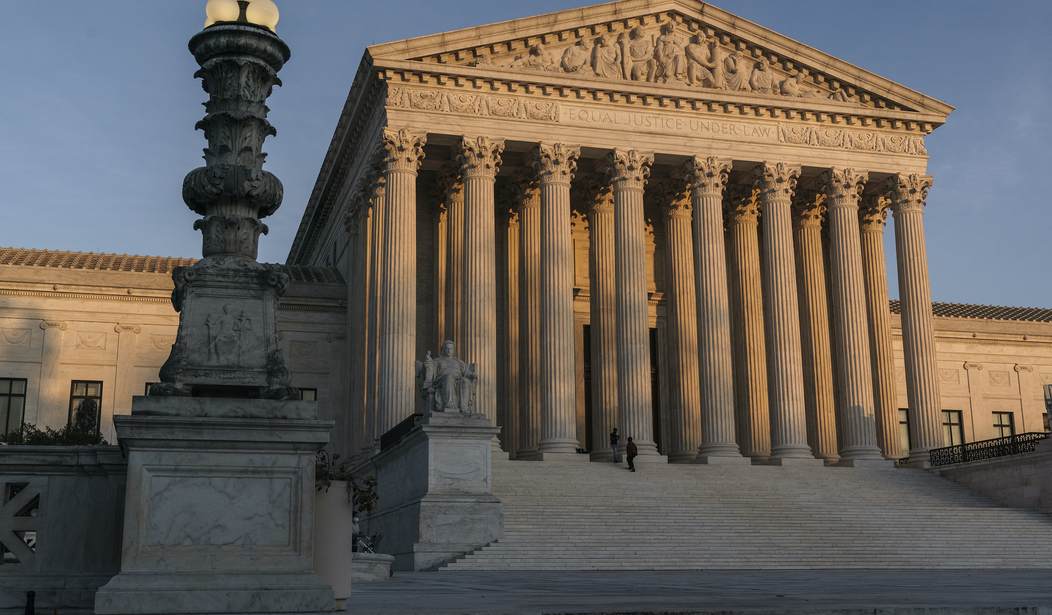Back in April, I wrote about the case of Pakdel v. City and County of SF, involving the Ninth Circuit decision appealed to the Supreme Court which upheld a San Francisco ordinance that required persons converting rental property into condominiums to offer a lifetime lease to any renter occupying a unit of the property as a condition of the conversion permit.
The basic facts are that the Pakdels, residents of a midwestern city still of working age, bought an undivided interest in a six-unit apartment building in San Francisco, and entered into a contract with the co-owers to seek to convert the property to condominiums pursuant to a specific San Francisco ordinance in effect at the time of their purchase. The contract provided that in the event of such conversion, a particular apartment unit in the building would become an individually owned condominium unit belonging to the Pakdels who planned to move to San Francisco when they retired.
The politicians running San Francisco then changed the condominium conversion ordinance. The new ordinance required that any persons seeking to convert an apartment building into a condominium, as a condition of obtaining the permit, had to offer a lease for the lifetime of the tenant to any person who was occupying a rental unit in the building prior to the conversion taking place. The unit of the Pakdel’s building that was assigned to them in their contract with the other co-owners was occupied by a tenant at the time they applied for the conversion permit. Pursuant to the new ordinance, the Pakdels were required to offer that person a lifetime lease to live in their retirement home — and the renter might just outlive them. The renter wanted the lifetime lease.
The Pakdels brought suit in federal court in San Francisco on the grounds that the San Francisco ordinance was an unconstitutional “taking” of their property by the City and County of San Francisco without just compensation.
The district court ruled against the Pakdels on procedural grounds — they hadn’t brought their action at an appropriate juncture in the conversion process, and that they hadn’t followed certain procedures prescribed by the San Francisco ordinance which might have allowed them to avoid the mandatory rental requirement. The Ninth Circuit, in a divided opinion, affirmed the lower court ruling, finding that the Pakdels had either failed to take certain steps by which they MIGHT have avoided the mandatory lifetime lease requirement and that the San Francisco agency decision on enforcing the requirement was not yet “final” and their case in the district court was premature.
In a per curiam decision — meaning the outcome is 9-0 but no specific Justice was assigned to write the Opinion of the Court — the Supreme Court reversed the Ninth Circuit and sent the case back. The Court held that the “taking” of property by a governmental entity happens upon the act giving rise to a federal constitutional claim, and the Pakdels’ claim against San Francisco was not dependent on their following-through on and compliance with various procedural requirements under the ordinance in order to have that their “takings” claim heard by a federal court.
The only “finality” required for their federal claim was an expression by the governmental agency that the landowner either do “something” with the property or suffer consequences for not doing so. San Francisco told the Pakdels to either offer a lifetime lease to the renter or they would face an “enforcement action” that could have canceled the conversion or fined the Pakdels for their failure to do so.
In this case, there is no question about the city’s position: Petitioners must “execute the lifetime lease” or face an “enforcement action.” Brief for Respondents 9. And there is no question that the government’s “definitive position on the issue [has] inflict[ed] an actual, concrete injury” of requiring petitioners to choose between surrendering possession of their property or facing the wrath of the government.
The Ninth Circuit’s contrary approach — that a conclusive decision is not “final” unless the plaintiff also complied with administrative processes in obtaining that decision — is
inconsistent with the ordinary operation of civil-rights suits. Petitioners brought their takings claim under §1983, which “guarantees ‘a federal forum for claims of unconstitutional treatment at the hands of state officials.’”…. That guarantee includes “the settled rule” that “exhaustion of state remedies is not a prerequisite to an action under . . . §1983.”
It is mystifying that what is written above is anything other than common sense, and that liberal judges in San Francisco and the Ninth Circuit would defend the procedures required by the ordinance passed by San Francisco, and allow the Pakdels’ property to be “confiscated” for the benefit of a renter simply because the Pakdels didn’t comply with procedural rules where San Francisco MIGHT have allowed them to avoid the requirements of the ordinance.
At the same, time I question why anyone would want to move to San Francisco to retire when you can see full well the kind of idiotic decisions made by the politicians who are elected by residents to run that pit. You might be hard-pressed to find a more beautiful spot on the planet that has been so horrendously destroyed by the volitional and intentional policies of elected politicians.
In the end, all it took was a decision of the United States Supreme Court to announce that “No, local elected officials cannot force you to rent your retirement home to another person for their lifetime, creating the possibility that they may outlive you and enjoy for themselves the retirement life you yourself had planned and saved for.”
What a legal system.














Join the conversation as a VIP Member